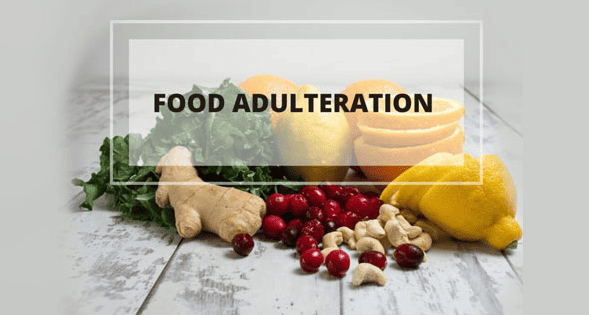
Did you eat breakfast today? Milk, fresh fruits, vegetables, tea, coffee, Kashmiri roti, even honey. Find out why it’s important? You can’t eat healthy in our cities. An intriguing question always baffles me; all that we naturally reach for as healthy foods can be potentially disease breeders.
Access to pure, nutritious food, free from any type of adulteration is the genuine expectation of every citizen. Despite improvement in production, processing and packaging, more adulterated food and spurious Medicine is entering our market. I haven’t yet met someone in the valley who can say that he/she is not a victim of rampant food or Medicine adulteration.
Everyone complains, but no one is willing to have checks and balances. Somehow, we have accepted it as an inevitable reality, however damaging it may be for our health, that we have no option but to live with. The issue is identified as a problem only when the level exceeds certain tolerance limits, or hyped in the media as sudden random checks by Food safety or drug controllers discover unhealthy practices, methodology, storage and toxic material used in preparations or serving.
Adulteration (duplicates) thrives both in cities as well as in rural outskirts; branded as well as non-branded items both are targeted. In my childhood, the biggest grouse of concerned mothers was the adulteration of milk with water by the local milkman. Today, watered milk would be almost noble. Now social media is frequently with posts of milk being faked with urea, detergents, caustic soda, white paint, and oil. Allah knows best what more.
A serious health hazard, toxic synthetic milk causes terrible ailments, including cancer. The milk may be full of hormones – mostly oxytocin, a banned drug given to cattle to increase lactation which once seeps into human body may lead to hormone imbalance and miscarriage, newborn eye problems, heart and neurological complications. What will you feed your child then, for strong bones and healthy growth? Fresh fruit or green veggies, and lots of calcium-rich spinach? Sorry, dear, but most of our “fresh” fruits and vegetables are also flushed with chemicals or pesticides if not washed properly. People say many chemicals, gases are injected generously into most gourds, including pumpkins, cucumbers, spinach, karelas, watermelons, bananas and mangoes to make them brighter, plumper, bigger and more attractive to consumers but dangerous for health.
Fruits and veggies also contain several times the permitted levels of pesticides, necessary for a good crop, but pesticides can cause serious health problems, such as birth defects, nerve damage, cancer, and other effects that might occur over a long period of time. However, these effects depend on how toxic the pesticide is and how much of it is consumed. Can we go for fish and meat? Well, how safe are fish — since they are routinely bred in water, thank God the water of river Jhelum, Wulsar and Dal lake has not been declared contaminated yet despite getting polluted with all sorts of wastes. And meat is rich in hormones, antibiotics and drugs that the animal (chicken) was fed to fatten it for slaughter. In fact, we ingest much more antibiotics and hormones from meats and poultry than we could ever do from honey.
I believe the epidemic of PCOS in young girls is because of contaminated chicken with hormones, but need a detailed research project -May be Dr. Ashraf, the noted endocrinologist could throw more light on this subject. Maybe we could drink lots of water to flush out these toxins? You could, with fingers crossed. A report showed many mineral waters TDS levels were not upto standard and had levels exceeding the Maximum Tolerance Limits (MTL). Although there are concerns about bottled mineral waters (due to plasticizers and endocrine disruptors), many are the health effects of natural mineral waters and several studies explored their properties and their role in different physiological and pathological conditions.
Adding secretly colouring agents to “wazzawaan” by our” cooks (wazzas)” is no surprise to a Kashmiri consumer, but many non-permissible and banned colors unfortunately are used to decorate sweets and other edible items causing serious health hazards like cancer in the long run. Adding any other powder (like sawdust) to tea/coffee/tamarind/coriander/chilli powder, mixing low quality or other cheaper varieties of grains/oils to foodgrains/edible oils and so on are some of the adulteration methods usually objected to by the consumer. Food adulteration has become rampant—same way. If I continue to enumerate the list, I am sure people will lose appetite. Intention here is simply to raise awareness of an unfortunate reality which may not be happening in our valley in big magnitude but foods and beverages coming from outside the UT may contain any of these harmful substances.
(To be continued…)
(The Author is Certified Healthcare Quality professional on healthcare Quality improvement and safety standards. Feedback: drfiazfazili@gmail.com)

















